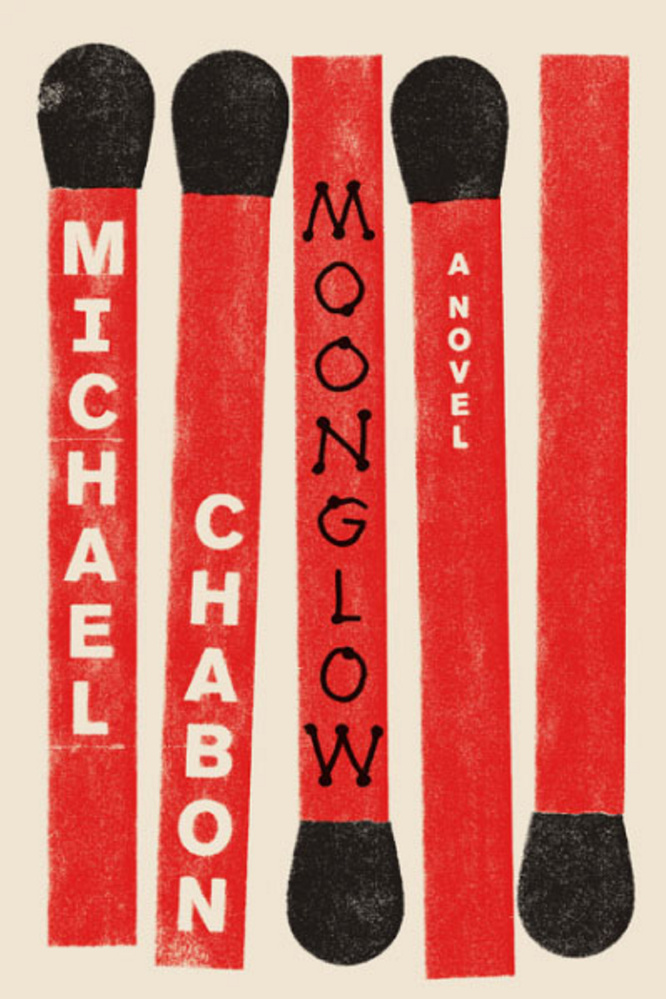It is the morning after the election. I am on a plane to Washington, D.C., confused and distraught about what happened. Someday, we will tell ourselves stories about this day, and what happened next, and perhaps our stories will carry the theme that our worst fears often do not materialize. Or we will tell our loved ones stories about how sometimes, our worst fears come to pass.
This day and the period that comes next seem destined to become family lore for many American families. How we voted, what we did, what happened to us – all of these will be spun into stories that we will tell ourselves about ourselves, and that we will tell our children and their children about who we were and how that shaped who we are today.
These family stories are the subject of Michael Chabon’s new book, “Moonglow,” a collection of deathbed stories told to a character named Michael Chabon by his grandfather. I spent a good deal of time trying to figure out whether the author’s real grandfather told him these stories and he just embellished them for the book, or if they are all made up. I’ll save you time – the stories are made up.
Chabon, who won the Pulitzer Prize for fiction in 2001 for “The Amazing Adventures of Kavalier & Clay,” likely would argue these stories always are made up, but they contain kernels of truth anyway. Our memories are imperfect, after all, and we color the stories we tell others. Stories are passed around families, changing shape each time. This is the essence of our oral histories and in them, Chabon argues, we can find the truth of who we think we are and who we want people to think we are.
Chabon never names his fictional grandfather, or his fictional grandmother, but they are brought to vivid life through his grandfather’s colorful stories, and, occasionally, stories told by others.
The grandfather was a hell-raiser, a liar, a warm lover, an obsessive about model rockets and space. The grandmother, a Holocaust survivor, struggles with mental illness, has a caustic sense of humor and possesses a theatrical heart. The couple’s relationship, relayed through the stories, is a moving one.
At one point, the fictional Chabon learns that many of the stories he heard obscured an important, and distressing, fact about one of his relatives.
He describes the strange feeling of having to reconsider what he thought he knew: “One by one I began to subject my memories of my grandmother, of the things she had told me and the way she had behaved, to a formal review, a kind of failure analysis, searching and testing them for their content of deceit, for the hidden presence in them of the truth.”
The book has flaws. For one, another family’s stories are never as interesting to outsiders as they are to loved ones. “Moonglow” lacks a sense of propulsive momentum for most of its first half. I wondered, not a few times, why are we here? Why should I care?
This issue made me consider what makes stories about others – which almost every work of fiction is – riveting. What is “Moonglow” missing? Why am I getting the same feeling – boredom, impatience – that I get when a mom on the playground goes into great detail about her son’s soccer game?
Chabon – the character – discusses why he decided to write the book like a memoir, and not like a novel. “Sometimes even lovers of fiction can be satisfied only by the truth,” he writes. “I felt like I needed to ‘get my story straight,’ so to speak, in my mind and in my heart. I needed to work out, if I could, the relationship between the things I had heard and learned about my family and my history while growing up and the things I now knew to be true.”
But how interesting is a memoir about a person we don’t know, or who isn’t famous enough to pique our interest? “Moonglow” is, for long spans, a collection of stories that, while colorful, serve mostly to tell us a lot about a (fictional) person we don’t know and a family we will never know. They lack a hook for the reader; that hook, it turns out, is pretty important.
What are we moving toward? How much do we care about the character’s search for the truth about his grandparents? Perhaps some readers will feel more invested.
That said, Chabon’s writing is lovely, and some readers will enjoy it so much they will forgive the lack of propulsion in the story. After all, occasionally, we all run into people who tell such good yarns it doesn’t matter that it’s about their kids’ soccer goals.
Beyond the writing, Chabon’s decision to explore family lore feels especially fresh and relevant. What will we tell our grandkids about these days, and our roles in them? Did we stand on the right side of history? Millions of us are writing family lore right now, stories that we will pass down to our loved ones, shaped, many of us hope, by profound relief that events turned out not as badly as we had feared.
Send questions/comments to the editors.



Success. Please wait for the page to reload. If the page does not reload within 5 seconds, please refresh the page.
Enter your email and password to access comments.
Hi, to comment on stories you must . This profile is in addition to your subscription and website login.
Already have a commenting profile? .
Invalid username/password.
Please check your email to confirm and complete your registration.
Only subscribers are eligible to post comments. Please subscribe or login first for digital access. Here’s why.
Use the form below to reset your password. When you've submitted your account email, we will send an email with a reset code.